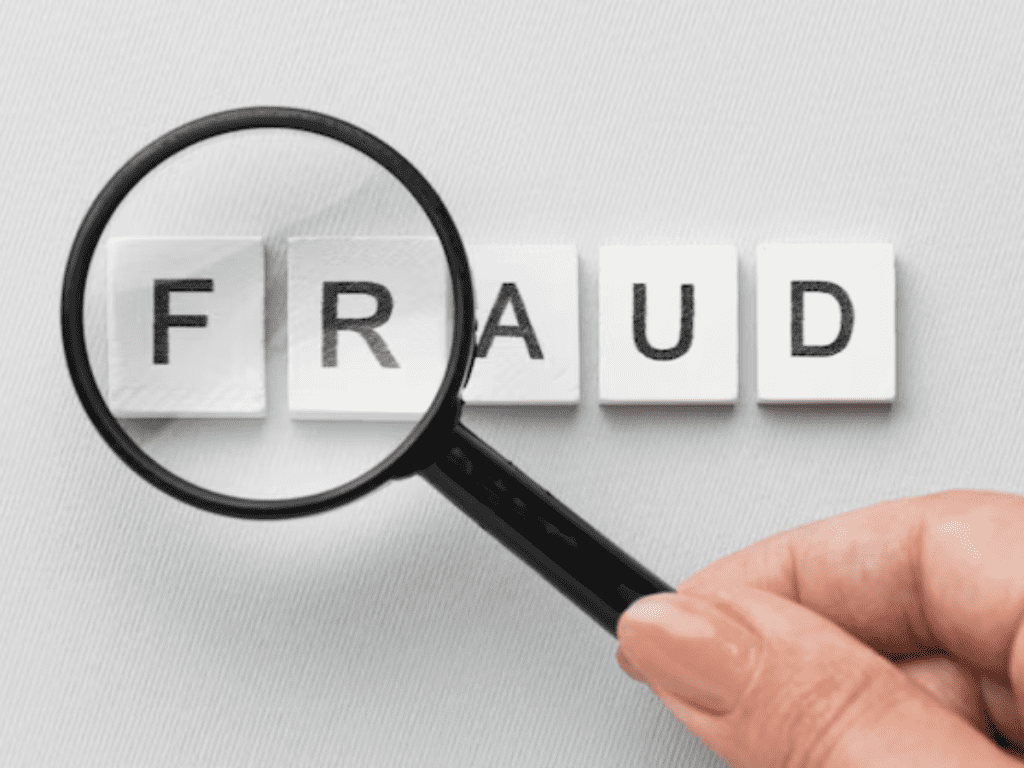Introduction
Making an insurance claim is supposed to offer financial security during times of need. Whether it’s a health, auto, home, or business insurance claim, you hope your insurer will stand by the agreement and pay your losses according to the terms of the policy. Unfortunately, insurance companies do deny legitimate claims, leaving policyholders frustrated and financially strained. If your claim has been unjustly denied, don’t give up hope—there are a number of things you can do to appeal the denial and get the compensation you are entitled to.
Why Insurance Claims Are Denied
Insurance companies deny claims for a number of reasons. Before you take action, it’s important to know why your claim was denied. Some of the most common reasons for denial are:
- Policy Exclusions: Your claim could be subject to certain exclusions in your policy.
- Insufficient Documentation: Incomplete or missing documents can result in denial.
- Late Filing: Insurance companies have time limits for filing claims, and failure to meet these deadlines can result in automatic rejection.
- Disputes Over Liability: The insurance company can dispute that you are partially or entirely liable for the loss.
- Policy Lapses: Since your policy lapsed because of missed payments at the time of the incident, your claim would be rejected.
- Pre-existing Conditions: Pre-existing conditions are also the reason for denying health or life insurance claims by insurers.
- Suspicion of Fraud: If the insurer has a suspicion of any form of dishonesty, they might deny the claim.
Once you realize why the insurance claim was denied, you can proceed to contest it.
Step-by-Step Guide to Handling a Denied Insurance Claim
1. Review the Denial Letter in Detail
Your insurance provider is obligated to send a written notice of denial. The letter will state the rejection reason and quote specific policy terms. Carefully read it and compare it to your policy coverage details to assess whether the reason given by the insurer is plausible.
If your denial letter is vague or lacks detailed explanation, ask your insurance provider for a clarification.
2. Check Your Insurance Policy for Coverage Details
Go through your insurance policy document thoroughly. Look for:
- Coverage limits
- Exclusions and conditions
- Claim filing procedures
- Appeal rights and deadlines
Policies are often complex and filled with legal jargon, so if you’re unsure about any clauses, consider consulting an insurance expert or attorney.
3. Gather and Arrange Supporting Evidence
If you think your claim was unjustly denied, it is important to collect solid evidence. Depending on the nature of the insurance claim, helpful documents might be:
- Medical Records: In case of a health or injury-related claim, obtain doctor’s reports, prescriptions, and hospital bills.
- Photographic Evidence: Capture good-quality photos of property damage, accident sites, or medical injuries.
- Witness Testimonies: Witness statements can reinforce your claim.
- Repair Estimates and Invoices: In the case of a house or car insurance claim, obtain bills from repair businesses or contractors.
- Police Reports: If your claim is for theft, vandalism, or a car accident, a police report can be very good evidence.
- Email and Call Logs: Document all calls with your insurer.
A well-documented case improves your chances of overturning the denial.
4. Call Your Insurance Company and Ask for Explanations
Before taking the matter up the line, attempt to resolve it with your insurer directly. Call the claims adjuster or customer service number and:
- Request a clear explanation of the denial.
- Submit any further evidence or outstanding documents.
- Appeal the claim.
Occasionally, a small paperwork error or a straightforward misunderstanding may be sorted out without going further into controversy.
5. File a Formal Appeal
If calling your insurer doesn’t work, the next course of action is to make a formal appeal. The majority of insurance companies have an appeals process, which is most likely set out in the denial letter or your policy document.
When making an appeal:
- Carefully follow the insurer’s appeal procedures.
- Write a comprehensive appeal letter setting out why you think the denial was in error.
- Attach all supporting documents that will make your case stronger.
- Make copies of all correspondence for your files.
Most insurance companies have strict time limits for appeals, so get your request in as quickly as possible.
6. Get Assistance from a Public Adjuster or Insurance Advocate
If your appeal is rejected or postponed, consider the services of a public adjuster or an insurance claims advocate. They are experts who negotiate with insurance companies on behalf of policyholders. They can:
- Scan your policy for concealed coverage opportunities.
- Conduct negotiations with the insurance company.
- Assist you in receiving a reasonable settlement without resorting to court.
Public adjusters normally function on a contingency basis, with them only getting paid in the event you receive your claim.
7. Complaint to Regulator Agencies
Should you suspect that your insurer is engaging in bad faith—stonewalling you, misunderstanding terms of policy, or wrongly rejecting your claim—you can file a complaint to your state’s insurance regulator office.
Most states also have an Insurance Department or Consumer Protection Office where you can:
- File a formal complaint against the insurer.
- Ask for an independent review of your claim.
- Receive help in addressing unfair claim practices.
Regulators can investigate complaints and, in certain situations, urge insurance companies to pay claims reasonably.
8. Consider Legal Action as a Last Resort
As a last resort, you might have to sue your insurer. An attorney who handles insurance claim disputes can assist you in bringing a bad faith insurance lawsuit, and it would compel the company to:
- Pay the claim value.
- Cover extra damages for unjustified denial.
- Reimburse for attorney’s fees and emotional distress.
Prior to taking this action, have your case reviewed by an attorney to determine how strong your case is. Most insurance lawyers provide free consultations, so you can find out what your options are without risking money.
Avoiding Future Claim Denials
While certain claim denials cannot be helped, there are things you can do to reduce the likelihood of rejection in the future:
- Read and Understand Your Policy: Be aware of what is covered, what is not covered, and how to make a claim.
- Keep Accurate Records: Keep receipts, invoices, medical records, and correspondence concerning your insurance.
- File Claims in a Timely Manner: Always file claims within the given time frames.
- Give Complete and Accurate Information: Prevent errors and misstatements when applying for insurance or making a claim.
- Document Everything: Document everything by taking photos, saving emails, and noting conversations with insurers.
Knowing Bad Faith Insurance Practices
There are instances where insurance providers might engage in bad faith, which means delaying, denying, or underpaying claims intentionally without justification. Bad faith insurance practices make policyholders go through a hard time recovering from monetary losses and psychological trauma.
Indicators of Bad Faith Insurance Practices
If your insurance company is doing any of the following, it could be acting in bad faith:
- Unreasonable Delays: The insurer keeps delaying the processing of your claim without a valid reason.
- Lack of Communication: The company is not responding to emails, calls, or letters about your claim.
- Inadequate Investigation: The insurer denies your claim without properly investigating the facts.
- Misrepresentation of Policy Terms: The company misreads or rewords policy terms in order to not pay.
- Lowball Settlements: The insurer makes an offer much lower than the value of the claim without reason.
- Changing or Cancelling Policies Retroactively: Some insurers try to change or cancel a policy after a claim has been made to not have to pay.
- False Fraud Allegations: The insurer makes allegations of fraud against policyholders with little or no evidence.
What to Do If You Suspect Bad Faith
If you suspect that your insurer is acting in bad faith, here’s what to do:
- Maintain detailed records of all contact with the insurer.
- Ask for written explanations for every decision.
- Report a complaint to your state’s insurance commissioner.
- See an attorney who handles bad faith insurance claims.
If convicted of bad faith, the insurer can be forced to pay additional damages, such as attorneys’ fees and damages for hardship.
How Different Types of Insurance Handle Claim Denials
Each kind of insurance has its own claim process, and denials are possible for a variety of reasons based on the policy. Here’s how to handle claim denials for various types of insurance:
1. Health Insurance Claim Denial
Health insurance claims are usually denied because:
- Treatment is classified as “not medically necessary”
- Services were not pre-approved by the insurer
- Procedures that are experimental or cosmetic
- Charges for out-of-network treatment in excess of policy limits
Appeal Procedure:
- Check the Explanation of Benefits (EOB) statement.
- Get a letter of medical necessity from your physician.
- Call your state insurance department if the denial is against healthcare law.
2. Auto Insurance Claim Denial
Auto insurance claims can be denied because:
- There is not enough coverage for the loss
- Exclusions in the policy (e.g., driving under the influence)
- There is disagreement about who is at fault
- The accident was reported late
Appealing:
- Gather police reports, dashcam video, and witness statements.
- Obtain a second opinion from an independent mechanic.
- Consider engaging the services of a car accident lawyer in case the insurer does not agree to negotiate.
3. Homeowners/Renters Insurance Denial of Claim
Home insurance claims can be denied when:
- Damage falls under excluded events (floods, earthquakes)
- There is a lack of adequate documentation
- The insurer states the damage was already there before
- The policyholder did not conduct periodic maintenance
How to Appeal:
- Provide detailed photos, videos, and repair estimates.
- Seek an independent property damage assessment.
- If necessary, involve a public adjuster or legal expert.
4. Life Insurance Claim Denial
Life insurance claims are often denied due to:
- Non-disclosure of medical conditions at the time of application
- Policy lapse due to unpaid premiums
- Death taking place under excluded situations (i.e., suicide during the period of contestability)
How to Protest:
- Obtain medical reports and validate that disclosures were correct.
- Provide documentation that premiums were made on time.
- Contact an attorney in case the insurance company unjustly denies the claim.

